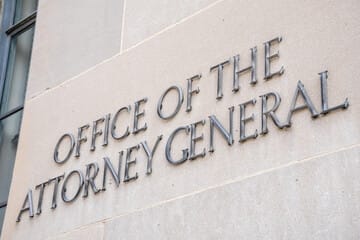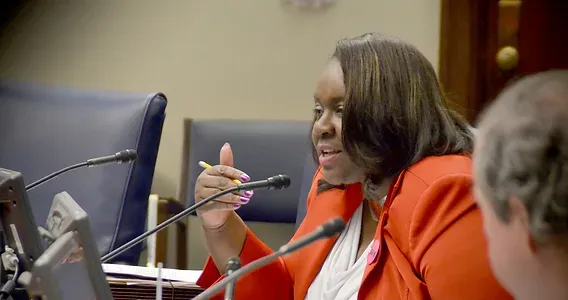14 GOP Attorneys General Attack Voting Rights Act, Threatening Black Political Representation in Louisiana and Nationwide

NEW ORLEANS—In a brazen move that imperils voting rights in Louisiana, fourteen Republican attorneys general have filed an amicus brief aggressively challenging a federal judge's interpretation of the Voting Rights Act (VRA). Led by Alabama Attorney General Steve Marshall, the brief contends that the decision in Nairne v. Ardoin could set a dangerous, unconstitutional precedent, placing states in a perilous position when crafting redistricting laws that comply with federal guidelines.
An amicus brief, or "friend of the court" brief, is typically submitted by those not directly involved in a case but who have a vested interest in its outcome. The GOP attorneys general argue that U.S. District Judge Shelly Dick's interpretation could coerce states into unconstitutional race-based districting, creating uncertainty over what actions might constitute a VRA violation.
At the heart of this controversy is Section 2 of the VRA, a vital provision that prohibits voting practices or procedures that discriminate based on race, color, or membership in a language minority group. The GOP attorneys general claim that the current interpretation muddles the legislative process and could lead to accidental legal infractions, but critics see this as a disingenuous argument designed to undermine essential protections.
Jared Evans, an attorney with the NAACP Legal Defense Fund representing Black Louisianians in the lawsuit, asserts that this brief is part of a broader, nefarious effort known as "Project 2025." This initiative, he warns, aims to systematically weaken the VRA, particularly by limiting the ability of private individuals or groups to bring lawsuits against discriminatory practices. Evans cautions that if this challenge succeeds, it could drastically reduce the number of majority-Black districts, not only in Louisiana but nationwide, severely diluting African American political influence.
In Louisiana, the current legislative maps include a paltry 28 of 105 House seats and 11 of 39 Senate seats as majority-Black districts. Plaintiffs in Nairne v. Ardoin argue that these maps grossly fail to provide fair representation for Black voters, preventing them from electing candidates who genuinely represent their interests on crucial issues like education, healthcare, and criminal justice reform. Weakening Section 2 would exacerbate this underrepresentation, leading to even less advocacy for policies addressing the unique challenges faced by these communities.
Moreover, the attorneys general dismiss legitimate concerns about voter suppression, particularly the location of voter registration offices in buildings shared with law enforcement agencies. Critics argue that such arrangements intimidate voters, especially in African American communities with a history of over-policing and voter intimidation. The brief dismisses these concerns as unfounded, but Evans and other advocates highlight that the physical proximity of law enforcement to voting facilities can deter voters, reducing turnout and perpetuating disenfranchisement.
Louisiana Attorney General Liz Murrill, a defendant in the case, did not join the brief and declined to comment, underscoring the divisive and critical nature of this issue. The potential weakening of Section 2 of the VRA represents a significant threat to the progress made in civil rights and voting equality, potentially setting a precedent that could make it more difficult to address and rectify discriminatory voting practices.
As the nation approaches a pivotal election year, the stakes are extraordinarily high. The outcome of this legal battle, driven by GOP attorneys general, could reshape the landscape of political representation and civil rights for years to come, with dire implications for African American communities in Louisiana and across the country.





